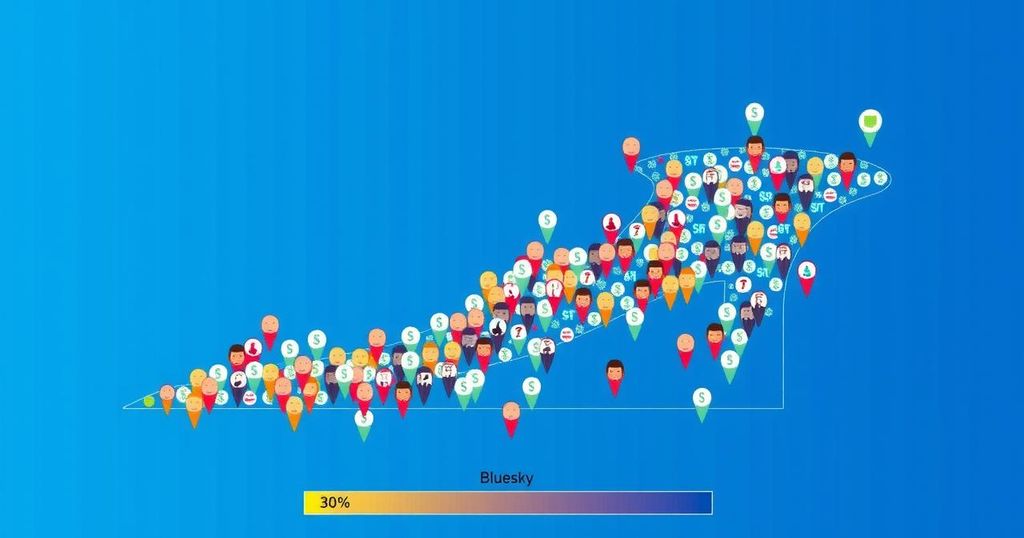Bluesky Gains 1 Million Users Post-Election Amidst Discontent with X

Bluesky has gained 1 million users since the U.S. election, totaling 15 million. The platform offers features reminiscent of early Twitter and presents a competitive alternative to X. Users have expressed their preference for Bluesky’s environment, especially after controversies surrounding X’s content policies.
In the wake of the recent U.S. election, social media platform Bluesky has seen a dramatic surge of 1 million new users, bringing its total to 15 million. This increase reflects a shifting interest among users seeking alternatives to X, formerly known as Twitter. Bluesky, initially an invitation-only platform developed under the guidance of Jack Dorsey, has enhanced its features, including moderation tools and various feed options. The platform offers a direct messaging system and user-curated content “starter packs” to enhance the experience of its diversified user base. This is not the first time that Bluesky has capitalized on the discontent with X. In the aftermath of X’s ban in Brazil last August, the platform gained 2.6 million users, signifying a trend of migration towards Bluesky amidst controversies surrounding X. Notably, a spike of 500,000 registrations occurred in just one day last month when X announced policy changes regarding visibility of blocked accounts. Despite Bluesky’s growth, X proclaimed its dominance in global discussions surrounding the U.S. election, with a reported 942 million posts generated on Election Day. Undoubtedly, both platforms inhabit a competitive digital landscape, with Bluesky’s recent comments implying its critical stance towards X’s user policies and management. A number of newly joined users have expressed their appreciation for Bluesky’s advertisement-free environment and moderated content, evoking nostalgic sentiments for what they characterize as the early, uncontested days of Twitter. Moreover, significant organizations like The Guardian have announced their withdrawal from X, citing an increase in hate speech and misinformation on the platform, which heightens concerns over the digital safety of users and brands.
The context surrounding the rise of Bluesky can be traced back to user dissatisfaction with X, particularly after controversial decisions made under Elon Musk’s leadership. The cancelation of advertisements and the proliferation of hate speech on X created a need for a safer and more user-friendly alternative. Several high-profile figures and organizations have indicated a preference for platforms like Bluesky, which are perceived to foster a more respectful environment for discourse. The fluctuating user statistics highlight a growing trend towards seeking alternatives in social media, particularly among journalists and political figures.
In conclusion, Bluesky’s significant user growth post-election underscores a clear desire for alternatives to X, particularly amid ongoing controversies regarding content moderation on the platform. With the recent trends indicating user migration and organizational withdrawals from X, it is evident that the competitive dynamics of social media continue to evolve. As users increasingly prioritize safe online spaces, platforms like Bluesky stand to gain prominence in the digital discourse landscape.
Original Source: apnews.com








